Welcome to Jiangsu DZX Factory.
Email:dlx@dlx-alloy.com Mobile/Whatsapp:+86 199 0611 9641
Professional manufacturer of welding wires and spraying wires,over 22 years.
Welcome to Jiangsu DZX Factory.
Email:dlx@dlx-alloy.com Mobile/Whatsapp:+86 199 0611 9641
Professional manufacturer of welding wires and spraying wires,over 22 years.
Contact:Jason
Whatsapp:+8619906119641
Email:dlx@dlx-alloy.com
Add:NO.32 West Taihu Road, Xinbei District, Changzhou, Jiangsu,China
Nickel Welding Wire
Product Details
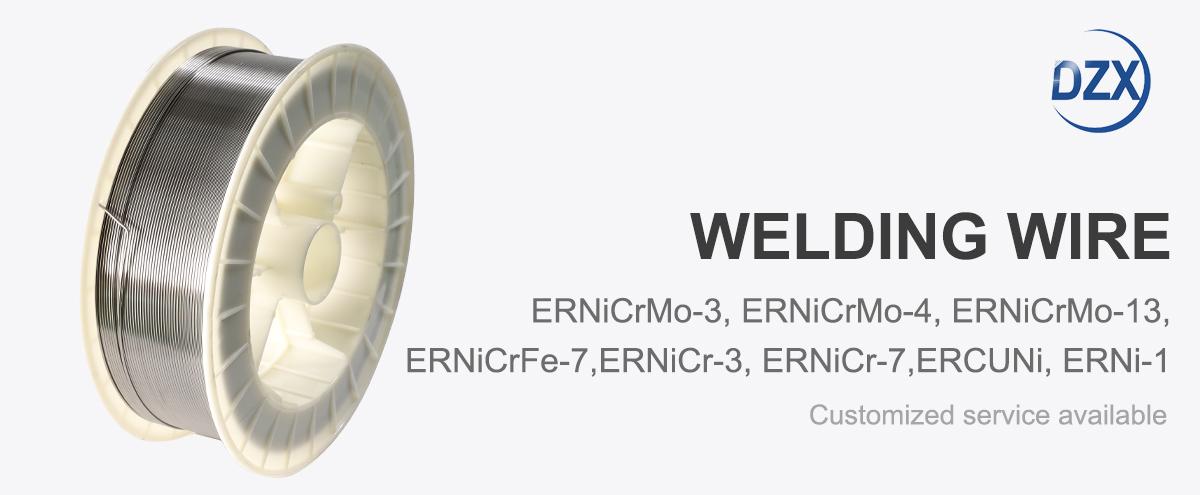
Our ERNiCu-7 ( Monel 400 ) Welding Wire is a must-have for welders fixing marine propellers and pumps. This nickel-copper alloy wire, with about 67% nickel and 30% copper, is built to tackle corrosion in harsh saltwater environments. It’s perfect for welding Monel 400 and similar nickel-copper alloys, delivering strong, durable welds that resist seawater, acids, and alkalis. With a tensile strength of around 80,000 psi and excellent resistance to stress corrosion cracking, this wire ensures repairs that last. Whether you’re patching a propeller blade or a pump casing, ERNiCu-7 gets the job done right.
At DZX, we’ve designed this wire for smooth welding performance. It flows cleanly in the weld pool, cuts down on defects like porosity, and works like a charm in TIG and MIG setups. Available in diameters from 0.8mm to 1.6mm and packaged in spools or straight rods, it’s versatile for any repair job. Built to AWS A5.14 standards, you can trust its quality for critical marine applications.
The nickel alloy welding wire market is growing strong, fueled by marine, oil and gas, and chemical processing industries. Corrosion-resistant materials are in high demand as companies aim to extend equipment life in harsh environments like seawater. Alloys like Monel 400 are a top choice for marine applications, where resistance to saltwater corrosion is critical. The market’s growth is driven by the need for reliable repairs on marine components like propellers, pumps, and valves, especially in shipping and offshore industries.
Trends like automated welding and wire arc additive manufacturing are picking up, requiring wires that produce clean, precise welds. Stricter environmental regulations push for materials that reduce maintenance and downtime, boosting demand for high-performance alloys. Challenges like weld imperfections and material compatibility make premium filler metals like ERNiCu-7 essential. The market is set to expand as marine industries invest in durable, corrosion-resistant solutions to keep operations running smoothly.
| AWS Classification | Applications |
| ERNiCr-3 | Used for welding 600, 601, and 800 alloys and dissimilar welding between stainless steel and carbon steel |
| ERNiCrFe-7 | Suitable for welding nickel-chromium-iron alloys under ASTM B163, B166, B167, and B168 standards |
| ERNiCrFe-6 | Designed for welding steel to nickel-chromium-iron alloys, as well as stainless steel to nickel-based alloys |
| ERNiCrCoMo-1 | Used for welding nickel-chromium-cobalt-molybdenum alloys and various high-temperature alloys |
| ERNiCrMo-3 | Suitable for nickel alloy, carbon steel, stainless steel, and low alloy steel welding, primarily used for 625, 601, 802 alloys, and 9% nickel alloys |
| ERNi-CI | Used for welding commercially pure nickel, malleable cast iron, and gray cast iron |
| ERCuNi | Suitable for welding 70/30, 80/20, and 90/10 copper-nickel alloys |
| ERNiCu-7 | Used for welding nickel-copper alloys such as B127, B163, B164, and B165 |
| ERNi-1 | Designed for welding pure nickel castings and forgings, including those under ASTM B160, B161, B162, and B163 standards |
| ERNiFeMn-CI | Suitable for welding nodular cast iron, ductile iron, malleable cast iron, and gray cast iron, as well as their dissimilar welding to stainless steel, carbon steel, low alloy steel, and various nickel alloys |
| ERNiCrMo-4 | Used for welding nickel-chromium-molybdenum alloys, or for welding nickel-chromium-molybdenum alloys to steel and other nickel-based alloys |
| ERNiCrMo-11 | uitable for self-welding nickel-chromium-molybdenum alloys, dissimilar welding with steel and other nickel alloys, and also for cladding applications |
| ERNiCrMo-13 | Used for welding low-carbon nickel-chromium-molybdenum alloys |
| ENiCrMo-3 | Designed for welding nickel-chromium-molybdenum alloys, including 625, 800, 801, 825, and 600 |
| ENiCrFe-3 | Used for welding nickel-chromium-iron alloys and for dissimilar welding with carbon steel |
| ENiCrFe-2 | Suitable for welding austenitic steel, ferritic steel, and high-nickel alloys, also used for 9% nickel alloy welding |
| ENiCu-7 | Primarily used for welding nickel-copper alloys and their dissimilar welding with steel |
| ENiCrFe-7 | Ideal for welding 690 (UNS N06690) nickel-chromium-iron alloys |
| ENiCrMo-4 | Designed for C-276 alloy welding and most nickel-based alloys |
| ENiCrCoMo-1 | Suitable for welding nickel-chromium-cobalt-molybdenum alloys and various high-temperature alloys |
| ERCuNi | Used for welding forged or cast 70/30, 80/20, and 90/10 copper-nickel alloys |
| ENiCrMo-13 | Used for welding low-carbon nickel-chromium-molybdenum alloys |
| ENiCrMo-11 | Used for welding low-carbon nickel-chromium-molybdenum alloys |
| Welding Wire Type | Density (g/cm³) | Melting Point (°C) | Electrical Conductivity (% IACS) | Coefficient of Thermal Expansion (10⁻⁶/°C) | Tensile Strength (MPa) | Yield Strength (MPa) | Elongation at Break (%) |
| Carbon Steel Welding Wire | 7.85 | 1450 | 8-10 | 11.8 | 400-550 | 300-400 | 20-25 |
| Stainless Steel Welding Wire | 7.9 | 1350-1450 | 2-5 | 16-17 | 550-650 | 300-400 | 30-40 |
| Aluminum Welding Wire | 2.7 | 600-660 | >60 | 23.1 | 150-200 | 75-100 | >20 |
| Nickel Alloy Welding Wire | 8.4 | 1350-1400 | 1-2 | 13.1 | 600-800 | 400-600 | 30-40 |
| Welding Rod Type | Coating | Electrical Resistivity (10⁻⁶ Ω·cm) | Hardness (HV) | Heat Resistance (°C) | Tensile Strength (MPa) | Yield Strength (MPa) | Elongation at Break (%) |
| Carbon Steel Welding Rod | Acid coated, alkaline coated | 10-15 | 150-200 | < 450 | 400-550 | 300-400 | 20-25 |
| Stainless Steel Welding Rod | Acid coated, alkaline coated | 60-80 | 200-400 | < 800 | 550-750 | 350-450 | 25-35 |
| Cast Iron Welding Rod | Alkaline coated | 90-120 | 250-450 | 300-600 | 300-500 | 150-300 | 10-20 |
| Nickel Alloy Welding Rod | Alkaline coated | 80-100 | 200-300 | < 1200 | 700-900 | 450-650 | 20-35 |
For more other size details, pls directly contact us
ERNiCu-7 Welding Wire is a go-to for marine repairs. It’s perfect for welding propellers, pump casings, and valve components exposed to seawater, thanks to its excellent corrosion resistance. In oil and gas, it’s used for offshore platforms and pipelines facing salty, corrosive conditions. The chemical processing industry relies on it for equipment like heat exchangers and tanks that handle acids and alkalis. It’s also a solid choice for desalination plants and marine shaft repairs, where durability in harsh environments is key.
This wire’s ability to resist pitting and stress corrosion cracking makes it ideal for both structural and repair welds. Its clean weld appearance ensures repaired components look professional, while its versatility across TIG and MIG processes makes it suitable for a range of applications, from small fixes to large-scale repairs.
Parameter | ERNiCu-7 | Other Nickel Alloy Welding Wire |
|---|---|---|
Nickel Content | ~67% for superior corrosion resistance | Often lower, e.g., 50-60% |
Tensile Strength | 80,000 psi (as welded) | Typically 70,000-90,000 psi |
Corrosion Resistance | Excellent, ideal for seawater and acids | Moderate, less suited for marine use |
High-Temperature Use | Stable up to 1,000°F (538°C) | Some handle higher temperatures |
Base Metal Compatibility | Monel 400, similar nickel-copper alloys | Broader but less optimized for Monel |
Weldability | Smooth flow, low defect rate | Varies, higher risk of imperfections |
Pitting Resistance | Outstanding, resists seawater pitting | Often less effective in harsh conditions |
Applications | Marine, oil and gas, chemical repairs | General-purpose, less specialized |
At DZX, we’re all about quality you can rely on. Our ERNiCu-7 Welding Wire is crafted with advanced manufacturing to ensure consistent performance. We meet AWS A5.14 standards, focusing on purity and precision to minimize weld imperfections like porosity or cracking. Our process eliminates issues like kinks or uneven feeding, so your repairs go smoothly, even on critical marine components.
We’re more than just a supplier. Our team offers hands-on support, helping you pick the right wire diameter or optimize welding settings for your specific repair job. We provide flexible packaging—spools for continuous welding or straight rods for precision TIG work—to fit your needs. With our high production capacity, we deliver fast, even for large orders, without cutting corners on quality.
Efficiency and sustainability are at the core of what we do. ERNiCu-7’s excellent weldability reduces rework, saving you time and materials. We’ve streamlined our supply chain to keep costs competitive while delivering a premium product. With DZX, you’re partnering with a company dedicated to your success, ensuring your marine repairs hold up in the toughest saltwater environments.
Our ERNiCu-7 Welding Wire is built for marine propeller and pump repairs in harsh conditions. It delivers strong, corrosion-resistant welds that stand up to seawater, acids, and alkalis with minimal imperfections. Its versatility and clean weld profile make it a top choice for critical repairs. With DZX, you get a high-quality product backed by a team committed to helping you succeed. Choose ERNiCu-7 for welds that last through the toughest marine challenges.
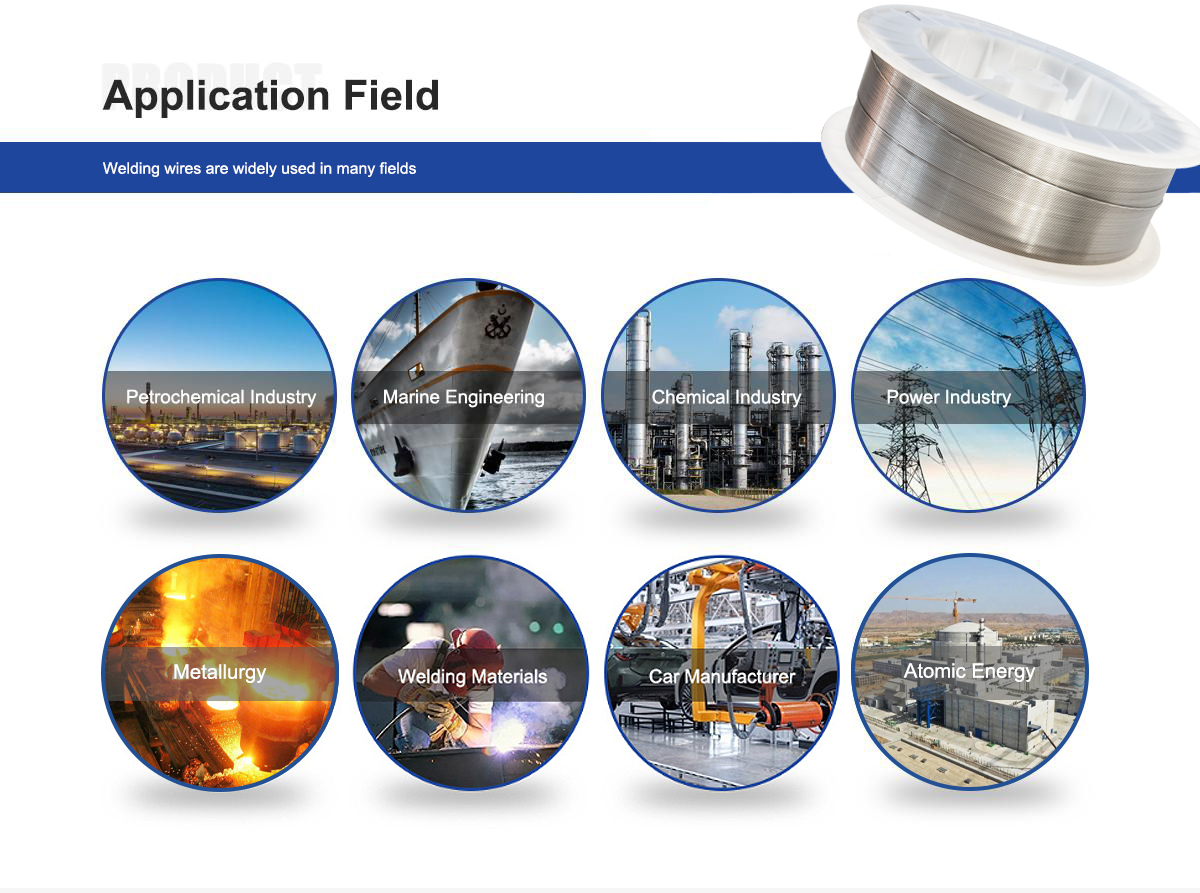
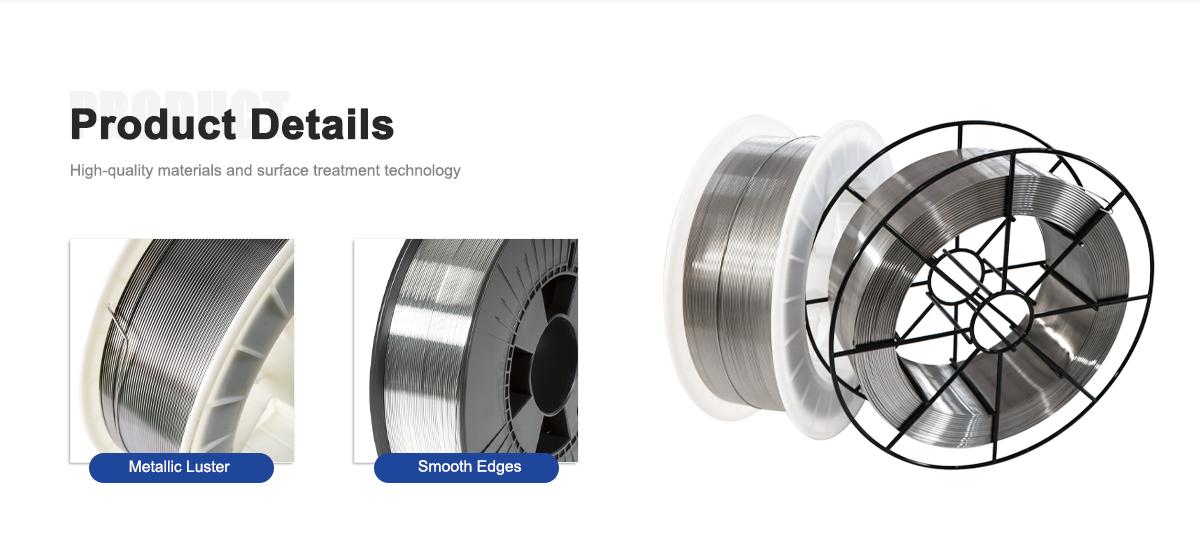
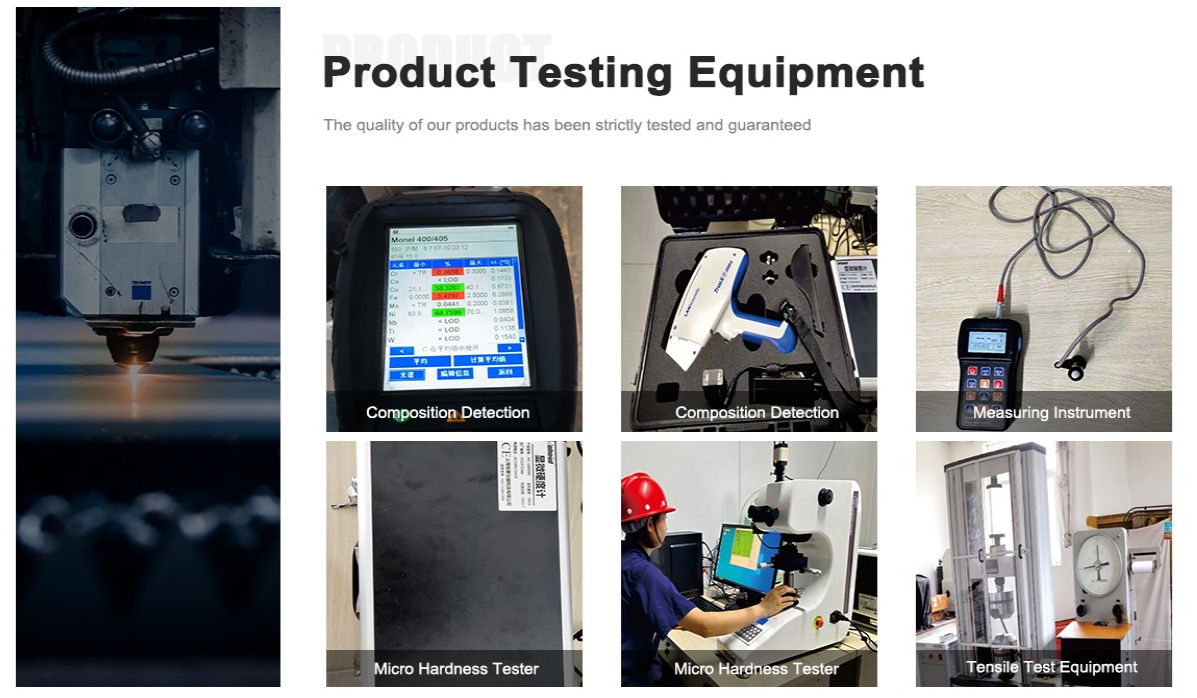
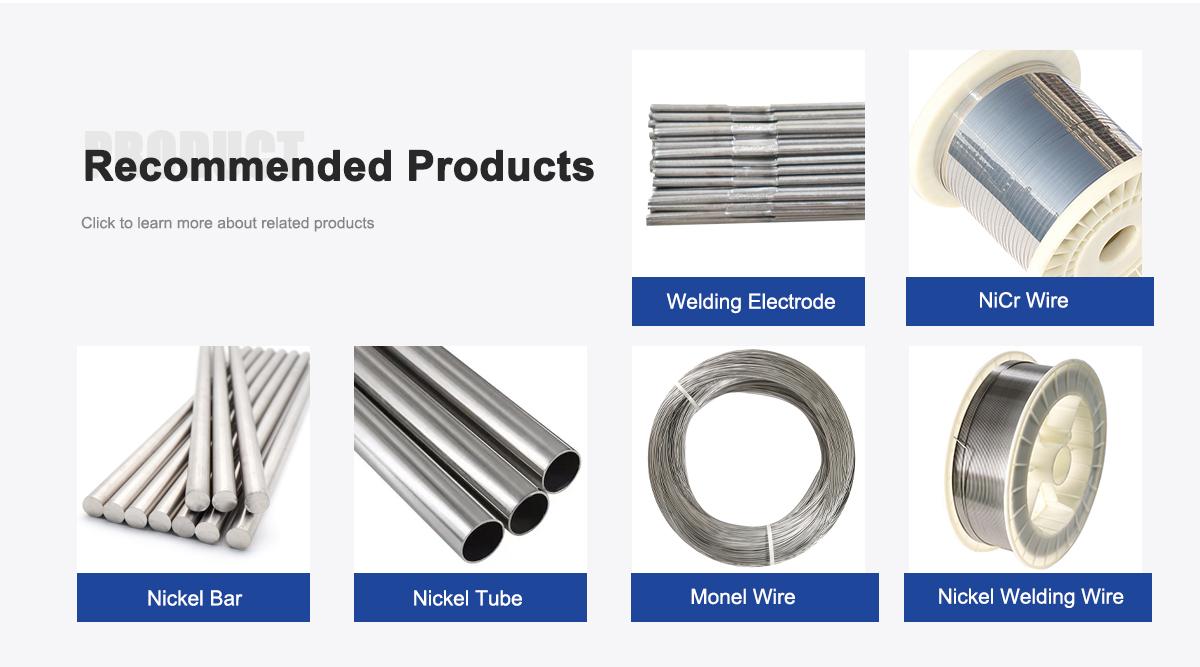
About Us:
Our 12,000㎡ factory is equipped with complete capabilities for research, production, testing, and packaging. We strictly adhere to ISO 9001 standards in our production processes, with an annual output of 1,200 tons. This ensures that we meet both quantity and quality demands. Furthermore, all products undergo rigorous simulated environment testing including high temperature, high pressure, and corrosion tests before being dispatched, ensuring they meet customer specifications. We also provide chemical analysis reports for every FeCrAl alloy, NiCr alloy, and other products purchased.
For all our clients, we offer timely and multilingual after-sales support and technical consulting, helping you resolve any issues swiftly and efficiently.
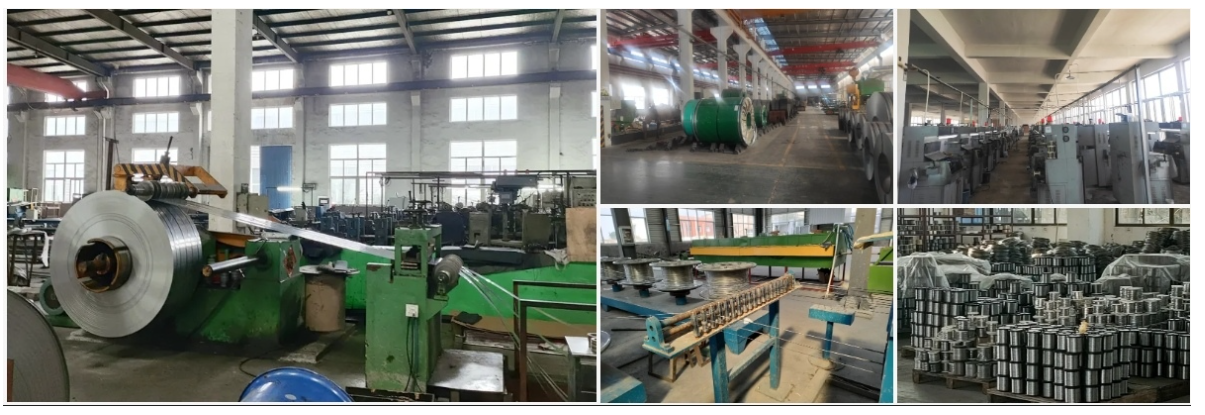
Client Visits
Building Stronger Partnerships
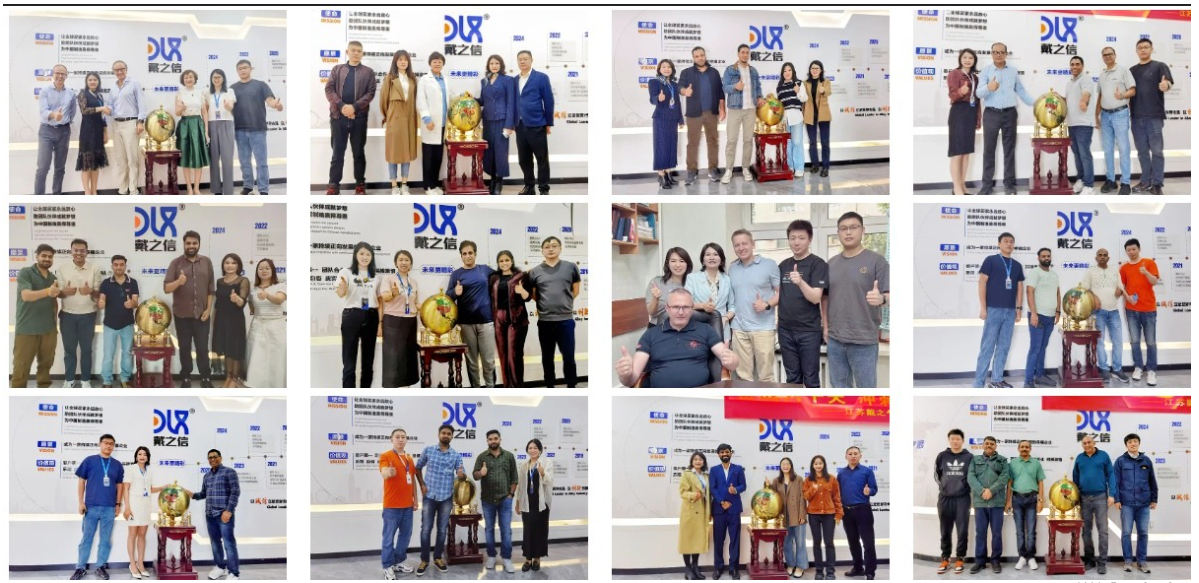
We support all kinds of testing:
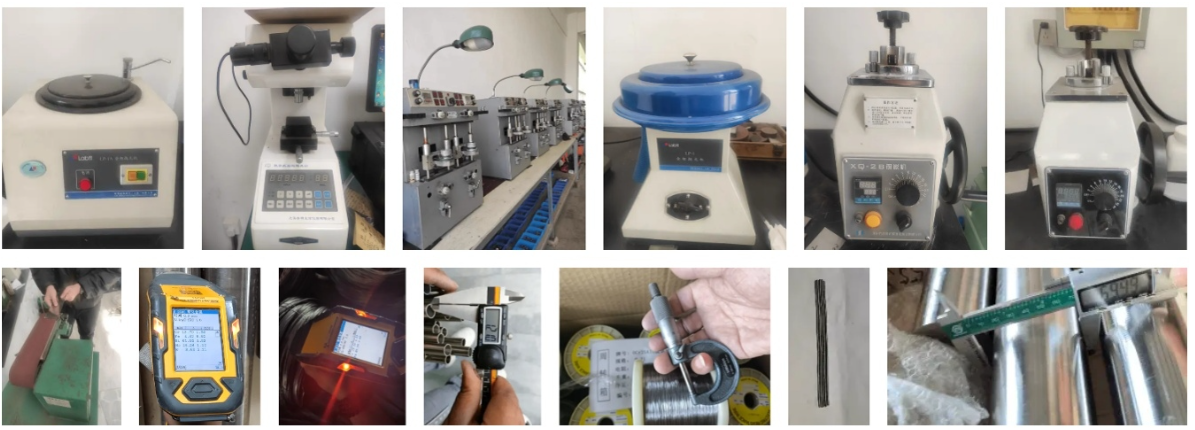

Why is ERNiCu-7 ideal for marine repairs?
Its high nickel and copper content resists seawater corrosion, perfect for propellers and pumps.
What alloys can ERNiCu-7 weld?
It’s optimized for Monel 400 and similar nickel-copper alloys.
How strong are ERNiCu-7 welds?
They offer a tensile strength of around 80,000 psi, ideal for durable repairs.
Can ERNiCu-7 handle corrosive environments?
Yes, it resists pitting, stress corrosion cracking, and acids in harsh settings.
What welding processes work with ERNiCu-7?
It’s designed for TIG welding but performs well in MIG setups for various repairs.
Is ERNiCu-7 suitable for high-temperature applications?
It’s best for moderate temperatures, up to 1,000°F (538°C), due to corrosion resistance needs.
Which industries use ERNiCu-7?
Marine, oil and gas, and chemical processing sectors rely on it for corrosion-resistant welds.
How do I minimize weld imperfections with ERNiCu-7?
Clean the base metal, control heat input, and adjust current (100-250A) based on thickness to reduce porosity or cracking.